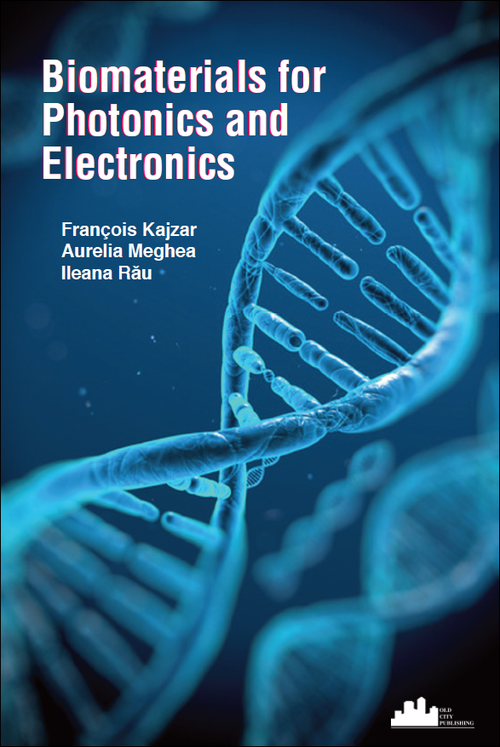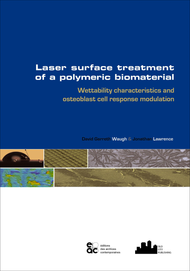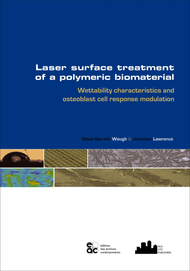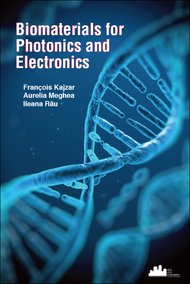- Home
- OCP Imprints
- OCP Science Digital Editions
- Biomaterials for Photonics and Electronics (PDF)
Product Description
Biomaterials for Photonics and Electronics
François Kajzar, Aurelia Meghea, and Ileana Rǎu
304 pp
Biopolymers, and more particularly deoxyribonucleic acid (DNA) have emerged recently as a very interesting class of materials for applications in molecular electronics and in photonics. They are highly versatile materials that can be functionalized on demand, depending on targeted applications. Moreover, they are abundant in nature, biodegradable and can be extracted from the waste produced by the food processing industry, addressing important human concerns of durable and sustainable development. Biopolymers can replace widely used already synthetic polymers and bring additional advantages. In particular, due to its special and unique properties associated with the chiral double strand helix structure DNA can replace offers a special environment for embedded molecules, enhancing their fluorescnce quantum yield and diminishing their aggregation. The use of biopolymers in modern technologies is also consistent with concepts of durable development. Indeed, DNA, the main biopolymer addressed here, is a very abundant material, biodegradable and comes from renewable sources, usually the waste material in the food processing industry.
This monograph is a unique, up to date and the most complete compendium to date, describing extraction, purification, functionalization, processing, photochemical stability studies as well as practical applications in photonics and in electronics of DNA. It is addressed not only to the researchers active in the field but also, to graduate students, newcomers and development engineers interested in practical applications of biopolymers in photonics and in electronics.
After payment has been processed for your order of a digital copy (PDF) of this article, you will see a download link on your completed order page and also receive an email containing a download link. The links, which will enable you to download one copy of the article, will expire after 24 hours.
 Loading... Please wait...
Loading... Please wait...








